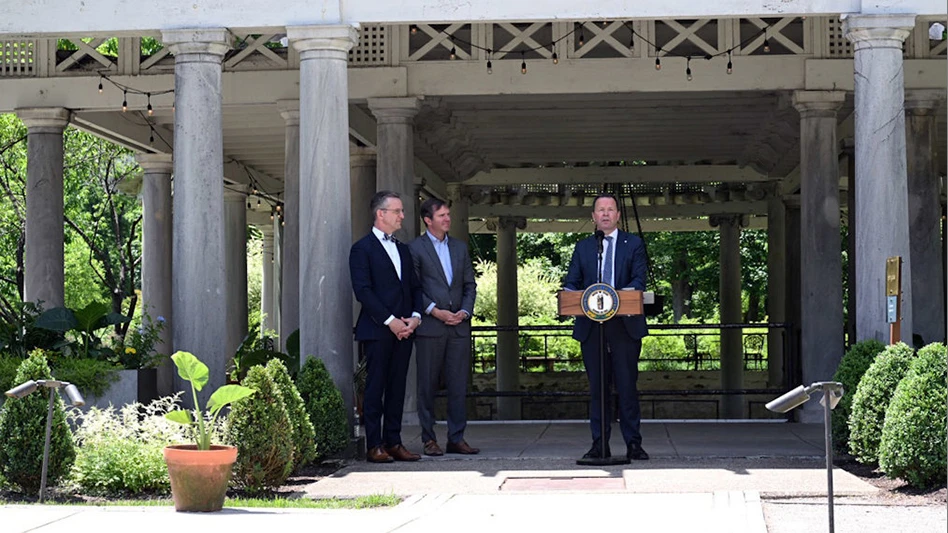
Photo by Halvor Molland and courtesy of Norsk Hydro
Norway-based Norsk Hydro is investing $85 million in a new casting line at its recycled-content aluminum production facility in Henderson, Kentucky.
Hydro says the new line will become operational in 2026 and is being created to supply the United States automotive sector with “high-quality automotive components.”
The investment decision was announced by Hydro President and CEO Eivind Kallevik at a meeting with Kentucky Gov. Andy Beshear.
The investment is backed in part by tax incentives from the Kentucky Economic Development Finance Authority. The new casting line will increase capacity by 28,000 metric tons annually and create more than 30 jobs in Henderson.
“This investment is another step along Hydro’s journey to change the game in aluminum production,” Kallevik says. “Recycling more end-of-life scrap reduces emissions, strengthens security of supply and enables us to deliver new, cutting-edge products to our U.S. customers."
In 2022, Hydro announced a $15 million investment in a new baghouse and other equipment at the Henderson plant.
The projects tied to those investments are now nearing completion and will enable Hydro to produce larger volumes of advanced alloys in Henderson using recycled, postconsumer scrap with a lower-carbon footprint.
The newly announced project involves HyForge technology, which has been implemented at the Hydro Husnes primary aluminum plant in Norway and the Hydro Rackwitz recycled-content plant in Germany.
Hydro describes HyForge as extruding aluminum cast forge stock with a smaller diameter and with a superior surface quality than traditional billets. “It can be forged directly into high-quality automotive components, like wheel suspension parts, without adding any further process steps such as extrusion or homogenization,” the company says of the HyForge process.
“Hydro Henderson has been at the forefront of producing recycling-based automotive products for nearly 20 years,” Kallevik adds. “We work closely with the automotive industry and introducing Hydro’s HyForge technology will provide Hydro and our partners with a greener advantage, made in America,”
The company says using the HyForge process means the number of steps from casting house to automotive parts are greatly reduced, leading to cost efficiency and higher product quality compared with traditional processes.
“Taking advantage of the new technology and expanded capacity caters to the specific needs of our customers within the automotive industry to create lightweight car parts, helping reduce emissions from driving,” Kallevik says. “This expansion significantly increases the use of end-of-life aluminum, cutting emissions from creating the products themselves, ensuring market-leading sustainability performance for Hydro and our customers.
“By investing in premier recycling technology and responding to the U.S. automotive industry’s demand to further decarbonize, Hydro Henderson is ready for the road ahead, fully in line with Hydro’s commitment to reduce carbon emissions and achieve net zero by 2050.”
Latest from Recycling Today
- BMW Group, Encory launch 'direct recycling’ of batteries
- Loom Carbon, RTI International partner to scale textile recycling technology
- Goodwill Industries of West Michigan, American Glass Mosaics partner to divert glass from landfill
- CARI forms federal advocacy partnership
- Monthly packaging papers shipments down in November
- STEEL Act aims to enhance trade enforcement to prevent dumping of steel in the US
- San Francisco schools introduce compostable lunch trays
- Aduro graduates from Shell GameChanger program





